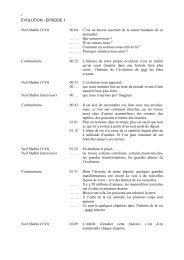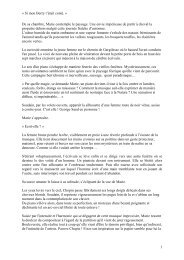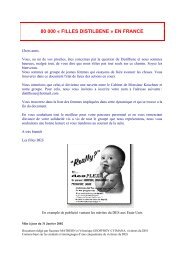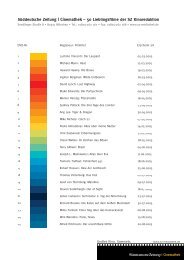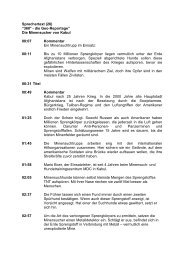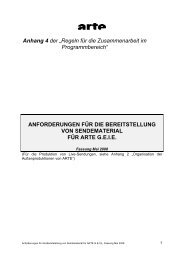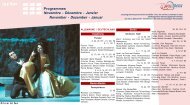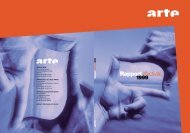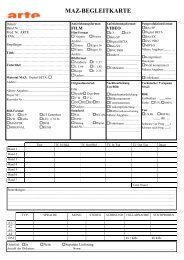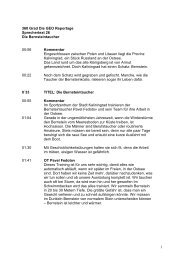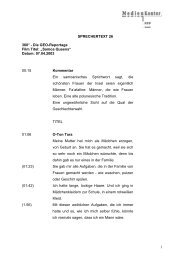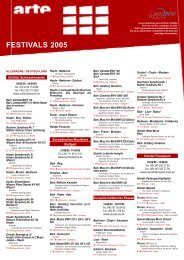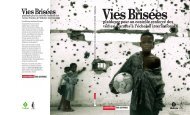POPs IN AFRICA HAZARDOUS WASTE TRADE 1980 - 2000 ... - Arte
POPs IN AFRICA HAZARDOUS WASTE TRADE 1980 - 2000 ... - Arte
POPs IN AFRICA HAZARDOUS WASTE TRADE 1980 - 2000 ... - Arte
Create successful ePaper yourself
Turn your PDF publications into a flip-book with our unique Google optimized e-Paper software.
of one million Deutschmarks (over USD 600,000) per month.<br />
A German firm, Schaal and Mueller, would have collected and<br />
packed the wastes. Shipping offers were made by a Soviet stateowned<br />
firm in Frankfurt, Transnautic.<br />
The contract was to be signed on June 15, 1988, in Nouakchott,<br />
Mauritania. However, this signing was prevented by the<br />
reorganization of the Mauritanian government.<br />
After further S.O.P. waste trade projects became public (see also<br />
Morocco), S.O.P. manager Otto Blosch said he would change<br />
business and become an advertising and estate agent. 127<br />
For more information on a related scheme, please see Morocco<br />
and Western Sahara.<br />
Obsolete Pesticides: In Mauritania there were altogether 297 tonnes of obsolete<br />
pesticides stored in 11 different locations, “mainly for locust<br />
control“.<br />
The following substances were identified, among others:<br />
Dieldrin, Lindane. 128<br />
127Documents obtained by Greenpeace, 1988.<br />
175 tonnes of “Dieldrin” produced by the Dutch branch of Shell<br />
during past decades were sent to Holland for incineration.<br />
Near the town of Ayoun el Atrous a stockpile of 78,000 litres (78<br />
tonnes) of the insecticide started leaking and contaminated the<br />
soil. During 1994, GTZ started a immediate action and<br />
safeguarded 28 000 litres of Dieldrin.<br />
1997 GTZ and DRAP, the Plant Protection Department of<br />
Mauritania, carried out a disposal operation and safeguarded 175<br />
tonnes of Dieldrin and collected thousands of empty pesticide<br />
drums (50 tonnes) from the whole country. GTZ shipped 225<br />
tonnes of the waste to AVR’s waste incinerator in Rotterdam.<br />
The project costs were fully covered by the German ministry for<br />
Economic Co-operation and Development (BMZ).<br />
Later, Shell paid the cost for the transport and the incineration<br />
which were 37,5% of the whole operation. 129<br />
However GCPF gives, again, a different impression: “In August<br />
<strong>2000</strong>, around 30 tonnes of contaminated sand were removed<br />
from the former Dieldrin store in the town of Rosso, in a joint<br />
project involving the same collaborators. The sand was taken to<br />
the Netherlands for decontamination. The operation was paid by<br />
Shell, and carried out in collaboration of Shell, GTZ-Mauritania<br />
and AVR. 130<br />
The fate of the remaining obsolete pesticides is still unclear.<br />
128 FAO 1999,2001<br />
129 GTZ letter to Andreas Bernstorff, Greenpeace Germany , GTZ-Report 1998<br />
130 GCPF 2001<br />
68



